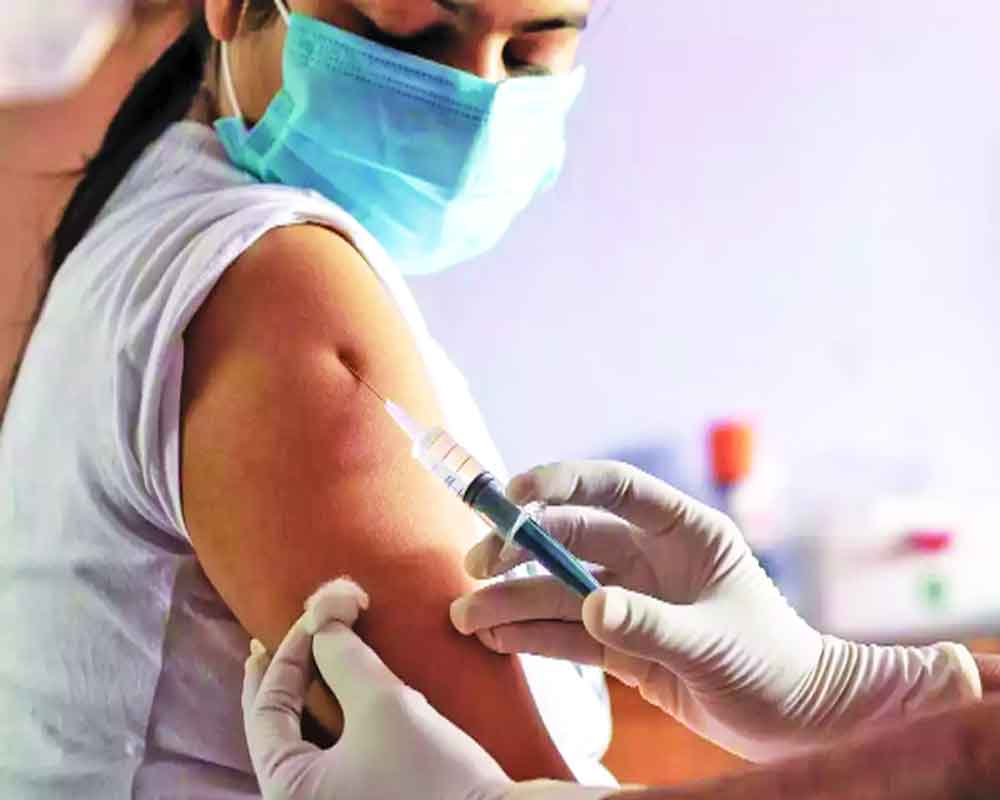Sparking criticism and raising concerns, British-Swedish multinational pharmaceutical firm AstraZeneca has for the first time acknowledged in court documents in the UK that its Covid-19 vaccine, which is known as Covishield in India, has the potential to cause Thrombosis with Thrombocytopenia Syndrome (TTS), a rare side effect associated with blood clotting.
This condition involves the formation of blood clots accompanied by a low platelet count, which is critical for blood clotting. As per media reports in the UK, the pharma giant is facing up to 51 litigations, being sued in class action over claims its vaccine caused death and serious injury in dozens of cases. In India, it was one of the widely administered Covid vaccines to reduce severe Covid-19 complications.
Developed in collaboration with University of Oxford, AstraZeneca’s vaccine was manufactured in India by Pune-based Serum Institute of India (SII). As many as 1,749,417,978 doses of Covishield vaccine have been administered in India, in what was the world’s largest vaccination programme from January 2021, according to the vaccine dashboard of the government’s web portal CoWIN as on April 29, 2024.
Taking cognizance of the development, Delhi Health Minister Saurabh Bharadwaj said the Indian Government should work to urgently address the alleged side-effects of the Covidshield vaccine as millions of people in India were administered the shot during the Covid pandemic.
Bharadwaj expressed concern over the alleged link between the vaccine’s side-effects and a series of sudden deaths in India, claiming that Covidshield was banned in several European countries, including Germany, France, Spain, Finland, Norway and Denmark, at the beginning of 2021 due to apprehensions about its safety.
Speaking about complications related to the Covidshield vaccine, Bhardwaj told a news agency, “”We have seen numerous videos on social media recently showing people collapsing and dying immediately after performing activities, which was not observed before the pandemic. Many people speculate a connection to the coronavirus vaccine and such reports are a matter of concern as they escalate tension.”
However, in India, the doctors said there was no need to worry. They said that if a person has received the AstraZeneca vaccine, known as Covishield in India, two years ago, the likelihood of experiencing any adverse effects now is extremely low. “Adverse effects, if they occur, typically manifest within a few weeks of vaccination,” said Dr Sudhir Kumar, Neurologist, Apollo Hospital, Hyderabad.
Dr Rajeev Jayadevan, Co-Chairman of the National Indian Medical Association, added that this particular outcome is reported only in the first month following the first dose, not afterwards. In India, Dr Kumar added that the incidence of TTS after the vaccine is not known.
“Only isolated case reports have been reported. So, TTP is extremely rare after Covid vaccination, considering millions of vaccine doses have been administered,” the expert said.
“TTS is thrombosis with thrombocytopenia syndrome, which is basically clot in blood vessels of the brain or elsewhere, along with a low platelet count. It is known to occur in very rare instances following certain types of vaccines and also from other causes. According to the WHO, adenovirus vector vaccines in particular have been rarely associated with this condition,” Dr Jayadevan asserted.
Dr MV Padma Srivastava, Chairperson - Neurology, Paras Hospitals, Gurugram, however, told a news agency, “I have read the recent report which states that TTS (Thrombosis Thrombocytopenia Syndrome (TTS) is happening. In rare events, I can say that the vaccine has caused certain consequences and TTS.”
More than 17 million people have received the vaccine in the United Kingdom and the European Union to date, with fewer than 40 cases of blood clots reported as of last week. In a statement AstraZeneca said, “Our sympathy goes out to anyone who has lost loved ones or reported health problems. Patient safety is our highest priority, and regulatory authorities have clear and stringent standards to ensure the safe use of all medicines, including vaccines.”
TTS typically manifests with symptoms such as severe headaches, abdominal pain, leg swelling, shortness of breath, and neurological deficits. Diagnosis involves blood tests to assess platelet levels and imaging studies to detect blood clots.
Last year, a WHO report had said TTS emerged as a new adverse event following immunisation in individuals vaccinated with COVID-19 non-replicant adenovirus vector-based vaccines.

























